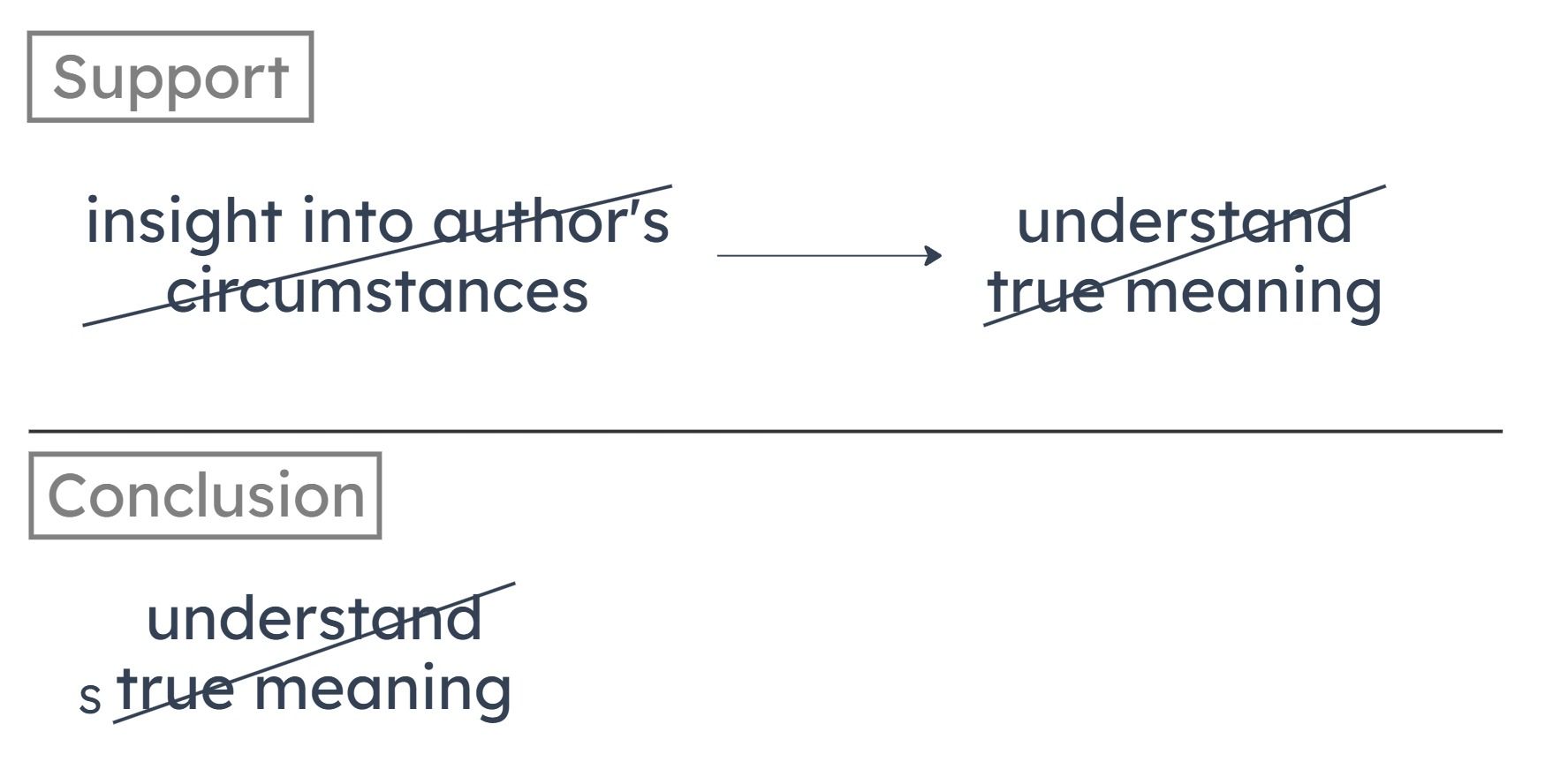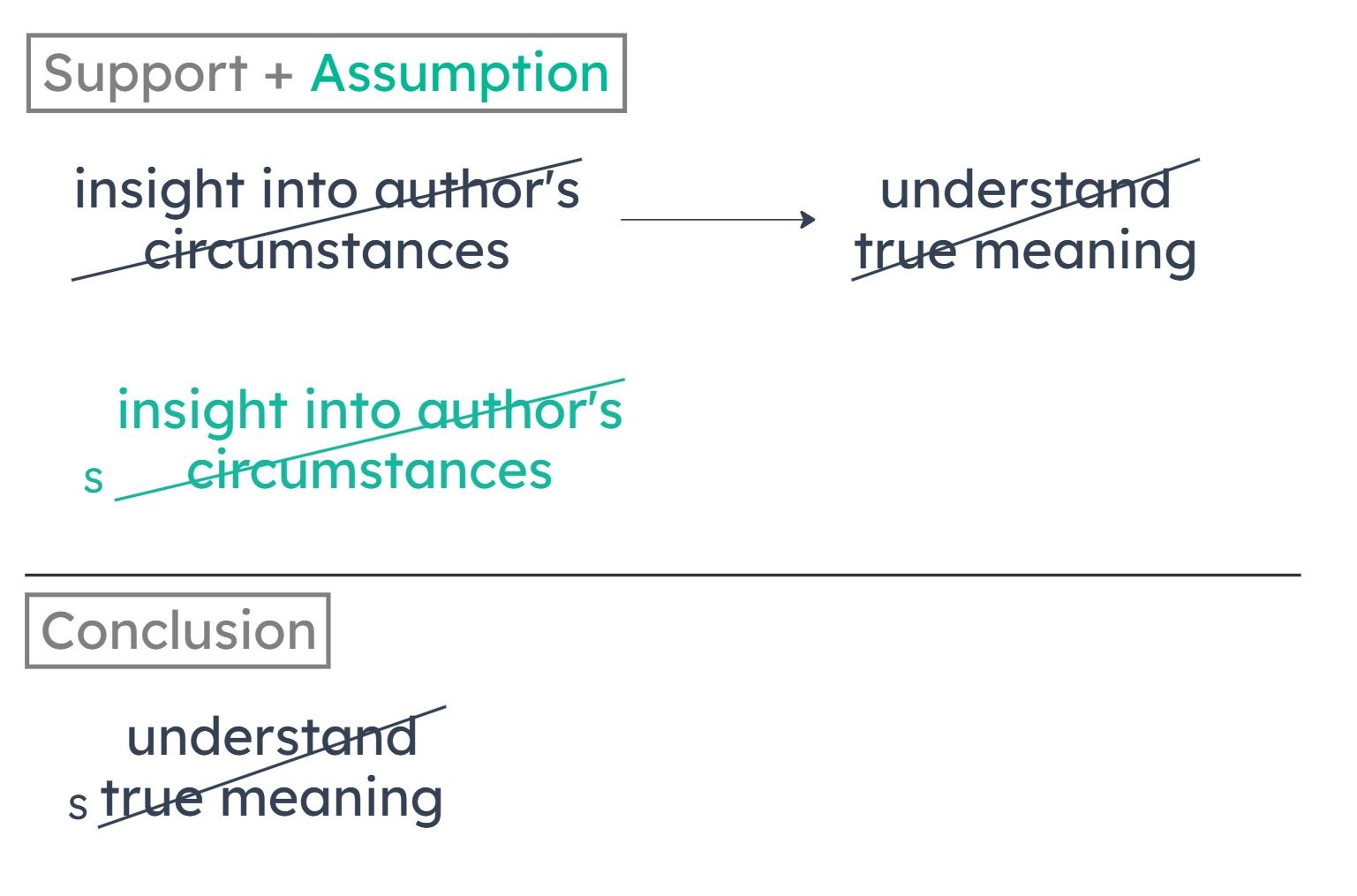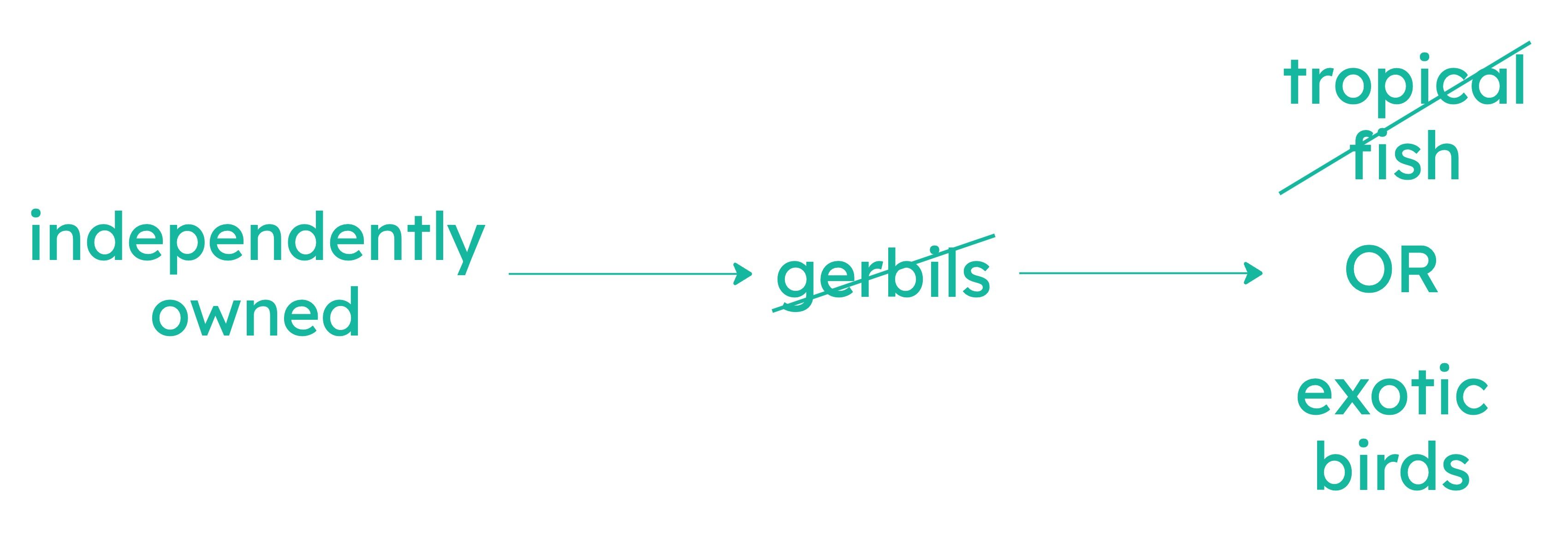Music critic: But rap appeals to tradition by using bits of older songs. Besides, the themes and styles of rap have developed into a tradition. And successful rap musicians do not perform purely idiosyncratically but conform their work to the preferences of the public.
A
challenges it by offering evidence against one of the stated premises on which its conclusion concerning rap music is based
B
challenges its conclusion concerning rap music by offering certain additional observations that the music professor does not take into account in his argument
C
challenges the grounds on which the music professor generalizes from the particular context of rap music to the broader context of musical tradition and individuality
D
challenges it by offering an alternative explanation of phenomena that the music professor cites as evidence for his thesis about rap music
E
challenges each of a group of claims about tradition and individuality in music that the music professor gives as evidence in his argument

A
Insight into the intended meaning of an author’s work is not as important as insight into its true meaning.
B
Smith lacks insight into her own social circumstances.

C
There is just one meaning that Smith intends her work to have.
D
Smith’s theory about the relation of social circumstances to the understanding of meaning lacks insight.
E
The intended meaning of an author’s work is not always good evidence of its true meaning.
A
The study relied on the subjects’ self-reporting to determine whether or not they snored frequently.
B
The patients’ throat surgery was not undertaken to treat abnormalities in their throat muscles.
C
All of the test subjects were of similar age and weight and in similar states of health.
D
People who have undergone throat surgery are no more likely to snore than people who have not undergone throat surgery.
E
The abnormalities in the throat muscles discovered in the study do not cause snoring.
Ultimately the argument can be diagrammed, although most would find it difficult to translate the conclusion:
Premise: happiness → health
Conclusion: acquire money → NOT sacrifice health (in other words, have health)
Missing link: acquire money → happiness
A
Money should be acquired only if its acquisition will not make happiness unobtainable.
B
In order to be happy one must have either money or health.
C
Health should be valued only as a precondition for happiness.
D
Being wealthy is, under certain conditions, conducive to unhappiness.
E
Health is more conducive to happiness than wealth is.
This is a tough SA question that doesn't make itself easily translatable into Lawgic.
The argument in the stimulus:
(Premise) without health, happiness is not obtainable
(Premise, using Group 3 translation) happiness --> not sacrifice health [meaning you have health or you are healthy]
___________
(Conclusion) never sacrifice health to acquire money
(Conclusion, using Group 4 translation) acquire money --> not sacrifice health
So what's missing?
(sufficient assumption) acquire money --> happiness
(sufficient assumption) acquire money only if not make happiness unobtainable. The double negation "not" and "un" cancel out.
Together, we get:
acquire money --> happiness --> not sacrifice health
___________
acquire money --> not sacrifice health
Vanessa: All computer code must be written by a pair of programmers working at a single workstation. This is needed to prevent programmers from writing idiosyncratic code that can be understood only by the original programmer.
Jo: Most programming projects are kept afloat by the best programmers on the team, who are typically at least 100 times more productive than the worst. Since they generally work best when they work alone, the most productive programmers must be allowed to work by themselves.
Summary
Vanessa believes that all computer code must be written by two programmers who collaborate at the same work station.
Vanessa’s belief is based on her assertion that collaboration prevents programmers from writing code that only they can understand.
Jo believes that the most productive programmers must be allowed to work by themselves.
Jo’s belief is based on two assertions: that the best programmers keep most programming projects afloat through their prolificness, and that these most productive programmers generally work better solo.
Notable Valid Inferences
The correct answer will describe an assignment that violates either Jo’s principle, Vanessa’s principle, or both principles. To violate Jo’s principle, the right answer would have to describe an assignment in which the most productive programmer on a team is forced to work collaboratively. To violate Vanessa’s principle, the right answer would have to describe an assignment wherein computer code is produced by someone other than a pair of programmers working at the same work station.
A
Olga and Kensuke are both programmers of roughly average productivity who feel that they are more productive when working alone. They have been assigned to work together at a single workstation.
Consistent with both principles. Because Olga and Kensuke are assigned to work together at a single workstation, the assignment satisfies Vanessa’s principle. Because they’re not the most productive programmers, Jo’s principle doesn’t mandate that they be permitted to work solo.
B
John is experienced but is not among the most productive programmers on the team. He has been assigned to mentor Tyrone, a new programmer who is not yet very productive. They are to work together at a single workstation.
Consistent with both principles. Because John and the new programmer are assigned to work together at a single workstation, the assignment satisfies Vanessa’s principle. Because they’re not the most productive programmers, Jo’s principle doesn’t apply.
C
Although not among the most productive programmers on the team, Chris is more productive than Jennifer. They have been assigned to work together at a single workstation.
Consistent with both principles. Because Chris and Jennifer are assigned to work together at a single station, the assignment satisfies Vanessa’s principle. Because they’re not the most productive programmers, Jo’s principle doesn’t mandate that they be permitted to work solo.
D
Yolanda is the most productive programmer on the team. She has been assigned to work with Mike, who is also very productive. They are to work together at the same workstation.
Inconsistent with Jo’s principle. Because Yolanda is the most productive programmer on the team, any assignment that is consistent with Jo’s principle must allow her to work alone.
E
Kevin and Amy both have a reputation for writing idiosyncratic code; neither is unusually productive. They have been assigned to work together at the same workstation.
Consistent with both principles. Because Kevin and Amy are assigned to work together at a single workstation, the assignment satisfies Vanessa’s principle. Because they’re not the most productive programmers, Jo’s principle doesn’t mandate that they be permitted to work solo.
In West Calverton, most pet stores sell exotic birds, and most of those that sell exotic birds also sell tropical fish. However, any pet store there that sells tropical fish but not exotic birds does sell gerbils; and no independently owned pet stores in West Calverton sell gerbils.
Summary
The stimulus can be diagrammed as follows:

Notable Valid Inferences
No West Calverton pet store that sells tropical fish but not exotic birds is independently owned.
All independently owned West Calverton pet stores either sell exotic birds or don’t sell tropical fish.
A
Most pet stores in West Calverton that are not independently owned do not sell exotic birds.
Could be false. The stimulus never has “pet stores in West Calverton that are not independently owned” as a sufficient condition, so we can’t make any valid inferences about the percentage of those stores that do or don’t sell exotic birds.
B
No pet stores in West Calverton that sell tropical fish and exotic birds sell gerbils.
Could be false. As shown below, answer choice (B) is a conditional statement that uses “tropical fish and exotic birds” as its sufficient condition. But the stimulus doesn’t say anything about pet stores that sell tropical fish and exotic birds!

C
Some pet stores in West Calverton that sell gerbils also sell exotic birds.
Could be false. All we know about pet stores in West Calverton that sell gerbils is that they’re not independently owned. We have no information about whether or not some might also sell exotic birds!
D
No independently owned pet store in West Calverton sells tropical fish but not exotic birds.
Must be true. As shown below, by chaining the conditional claims, we see that “not selling tropical fish or selling exotic birds” is a necessary condition of being an independently owned pet store in West Calverton.

E
Any independently owned pet store in West Calverton that does not sell tropical fish sells exotic birds.
Could be false. Any independently owned pet store in West Calverton must either not sell tropical fish or sell exotic birds, but that means these stores could do any of the following: not sell tropical fish, sell exotic birds, or both sell exotic birds AND not sell tropical fish.